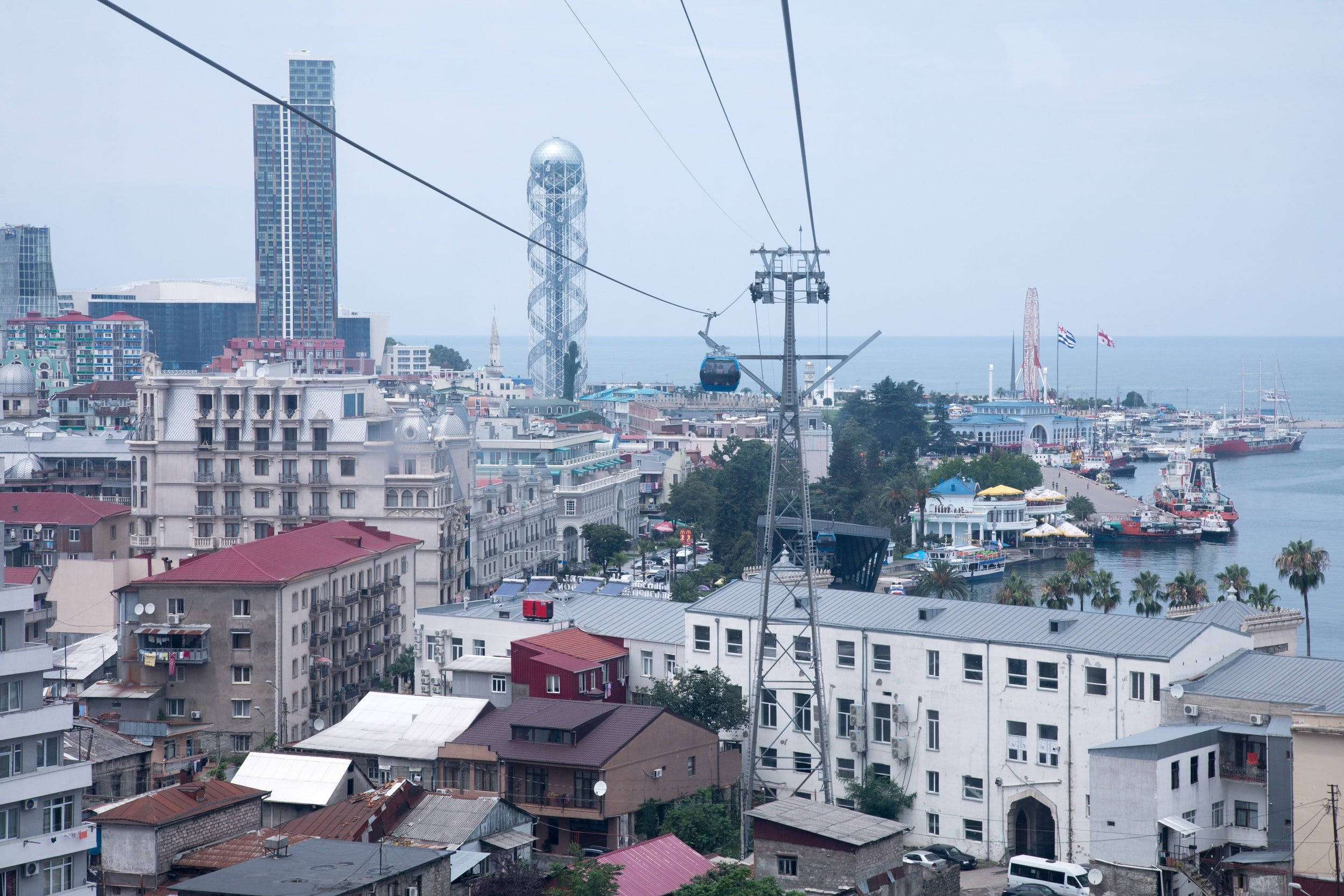Russia’s Invasion of Ukraine Is a Stark Reminder of a Past Conflict in Its Balkan Neighbor
Russia’s invasion of Ukraine eerily resembles a similar situation that occurred just over a decade ago in one of its Balkan neighbors. For Georgians, the invasion is a reminder of Russia’s invasion of their own country in 2008. Following a five-day conflict in Georgia, Russia recognized two Russian-occupied breakaway regions in the state: Abkhazia and South Ossetia. The conflict incentivized Georgia to tighten ties with the West, including the European Union (EU) and the North Atlantic Treaty Organization (NATO). Ukraine’s situation is reversed: Russia initially recognized the breakaway regions of Donetsk and Luhansk, then began a military intervention. But in both cases of invasion, Russian President Vladimir Putin decided to invade as a result of political objectives, viewing the countering of NATO’s expansion into eastern Europe as a necessity. Both conflicts were, in part, driven by Putin’s vocal desire to regain Russia’s position as a world superpower prior to the dissolution of the Soviet Union. The Kremlin has attempted to use Georgia and Ukraine as pawns in this objective to once again obtain geopolitical power.
The potential for Western democracy to permeate the political systems of Georgia and Ukraine has also instilled fear within Russia and has provided more reason behind both of these states’ invasions. Immense Western economic investment and a push towards a democratic system would weaken the Russian alliance system by diminishing Georgia and Ukraine’s reliance on Russia’s economic system. These fears have also resulted in the Kremlin promoting a regime change in both states. In 2008, Russian Foreign Minister Sergey Lavrov called for Georgian then-President Mikheil Saakashvili to be removed from power. Similarly, in Ukraine, Putin demanded the Ukrainian military oust the sitting government in order for peace talks to prevail.
Due to the resemblance of the invasion in Ukraine to the one in Georgia, the Georgian people have held immense support for Ukraine during Russia’s invasion of the country. Thousands have congregated in the city center to show solidarity with the country and hungUkrainian flags across windows and doors. But the Georgian government holds a different sentiment—one that is less defined. Georgia will not close its skies to Russian aviation, and it has purposefully made it difficult for Georgian volunteers to travel to Ukraine to fight against the Russian military. At the same time, however, Georgia aligned with the UN General Assembly Resolution on March 2 condemning Russia’s invasion of Ukraine. Among other actions, Georgia has also followed Moldova and Ukraine in formally applying for membership in the EU.
The Georgian government’s approach to responding to Russia is representative of “strategic patience”; this policy, geared towards Russia, involves avoiding any provocations that the Kremlin may target in relations with Georgia. The status quo of evading any possible direct conflict with Russia is present in Georgia’s response to Russia’s invasion as the country tiptoes around any potential for direct Russian confrontation against Georgia. Countries all over the world will have to determine how they will respond to states like Georgia, who have immense Russian influence, yet still, attempt to strengthen ties with the West.



